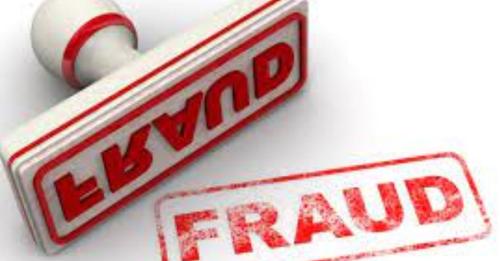
The Auditor-General has asked the parliament to initiate a an action that will lead to prosecution of government officials who stole nearly $1 billion in fake business deals under the Letters of Credit project between 2012 and 2015.
After the closure of oil production in 2012, the government negotiated dollar supply facilities from the Qatar National Bank and Stanbic CfC Bank to ensure the supply of strategic imports including, pharmaceuticals, fuel, food, building materials, and industrial inputs.
This was also meant to empower citizens in the private sector through the affirmative action nature of this mechanism.
Through this arrangement, the Qatar National Bank provided over $793 million and Stanbic CfC Bank availed $200 million.
In a summary Wundu presented to the parliament, he says the plan was a complete failure.
He states that individuals in “authority took advantage of the systems’ failure and involvement of their superiors in the abuse and joined the illicit self-enrichment queue.”
The report notes that internal controls, governance and risk management processes were very week at best and non-existent at worst.
This gave leaders a chance to quickly set up fake companies which they used to siphon off the money.
Some of them were Pharmaceutical companies that failed to import the supplies after getting millions of dollars.
They include Development & Prosperity Consultancy, Universal Group and Black Stone Investment.
Others were government institutions, which diverted the money into the pockets.
For example, the ministry of agriculture received over $15 million to purchase food supplies and heavy machineries.
However, the then senior officials created companies that never delivered the items.
Ezentus FZE Company Limited and Golden Lion Enterprises Company Limited got more than 9 million dollars.
In states, influential people awarded contracts to private companies that never delivered food items, notably Noor General Company in Lakes State, which received $2 million.
The report asks the national parliament to have the owners of the fake companies identified and punished.
“The National Legislative Assembly can lift the corporate veil and order the Director of Public Prosecution to charge the individual owners of the offending business entities in courts of law,” partly reads the report.
In his own words, Wundu told the parliament that the performance and management of the Letters of Credit cost the country, not only huge financial losses, but also national dignity and credibility in the eyes of the region and the world.
He added that the action of the leaders shows the world that the country is being run by “a team of reckless leaders” that has no capabilities to manage institutional responsibilities.
Support Eye Radio, the first independent radio broadcaster of news, information & entertainment in South Sudan.
Make a monthly or a one off contribution.
Copyright 2024. All rights reserved. Eye Radio is a product of Eye Media Limited.